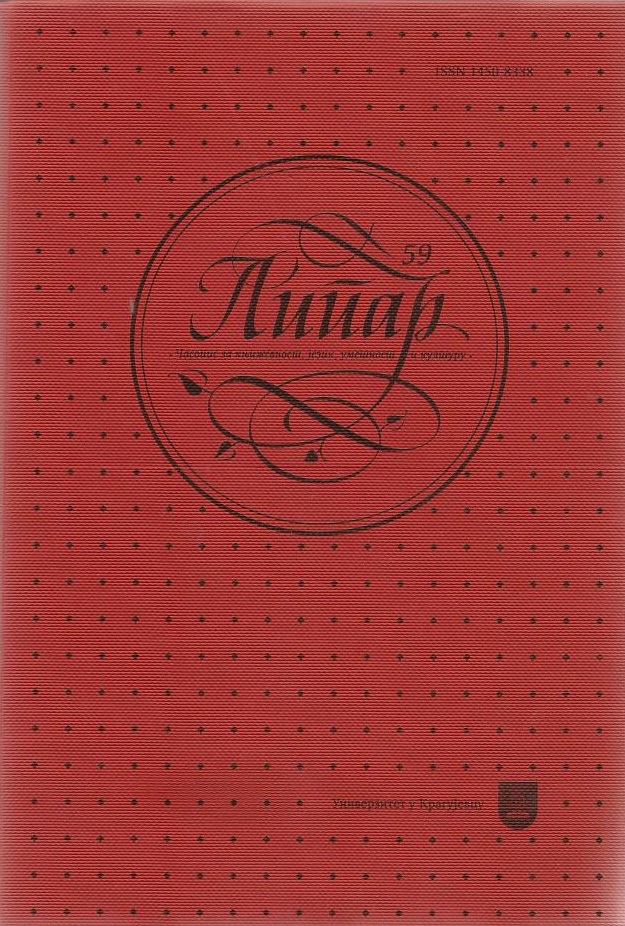ТОПОС ЛАВИРИНТА У БОРХЕСОВОЈ ПОЕЗИЈИ
TOPOS OF THE LABYRINTH IN BORGES POETRY
Author(s): Dušan R. ŽivkovićSubject(s): Language and Literature Studies, Studies of Literature, Other Language Literature, Philology, Theory of Literature
Published by: Универзитет у Крагујевцу
Keywords: the topos of the labyrinth; the creation of postmodernism; intertextuality; Hermetism; the library; the city; the divine and the demonic
Summary/Abstract: This paper analyzes the forms, the nature, functions and transformations of the topos of the labyrinth in Borges’ poetry, in the domains of the following aspects: in relations between the divine and the demonic labyrinths; 2. In the topos of library as encyclopedic paradigm; 3. In the spatio-temporal transformations of city-labyrinths; 4. in the combinatorics of chess labyrinth.Through the use of the analytical and synthetic method, we note that in the relations between divine and demonic labyrinths Borges applied and justified the hermetic principle that ambiguities, paradoxes and contrasts can operate simultaneously. In this context, through the establishment of various intertextual connections, the topos of the library represents an allegory of the universe of meaning. In addition to the metaphysical dimension of the library as labyrinth, in his use of cities-as-labyrinths Borges creates an interference of elements of everyday life and reflections about time, eternity and death, through of specific aspects of Argentine tradition with his cosmopolitan mission,while in his use of chess as labyrinth Borges explores, by employing combinatorical metaposition, the relations between man, his existential drama and God as the supreme architect. Borges combines and shapes distinct mythopoetic elements of the heritage of our civilization into a palimpsest, creating an original world, a poetic testimony to the pluralism of the 20th century that in the interference of diffuse causes and effects turns into a dialogue with the reader about the nature of the mystical currents of civilization. Borges, thus, built labyrinths of signs which transformed his unique creative principles into universal values of world literature that embody but also surpass the postmodern context.
Journal: Липар - часопис за књижевност, језик, уметност и културу
- Issue Year: XVII/2016
- Issue No: 59
- Page Range: 269-283
- Page Count: 15
- Language: Serbian

